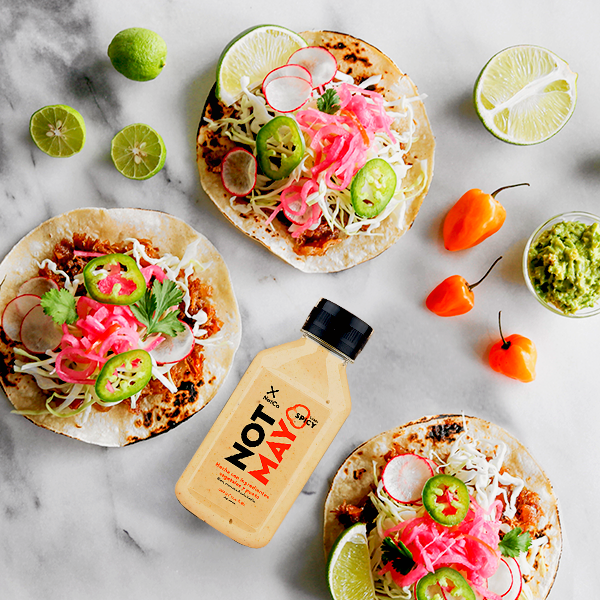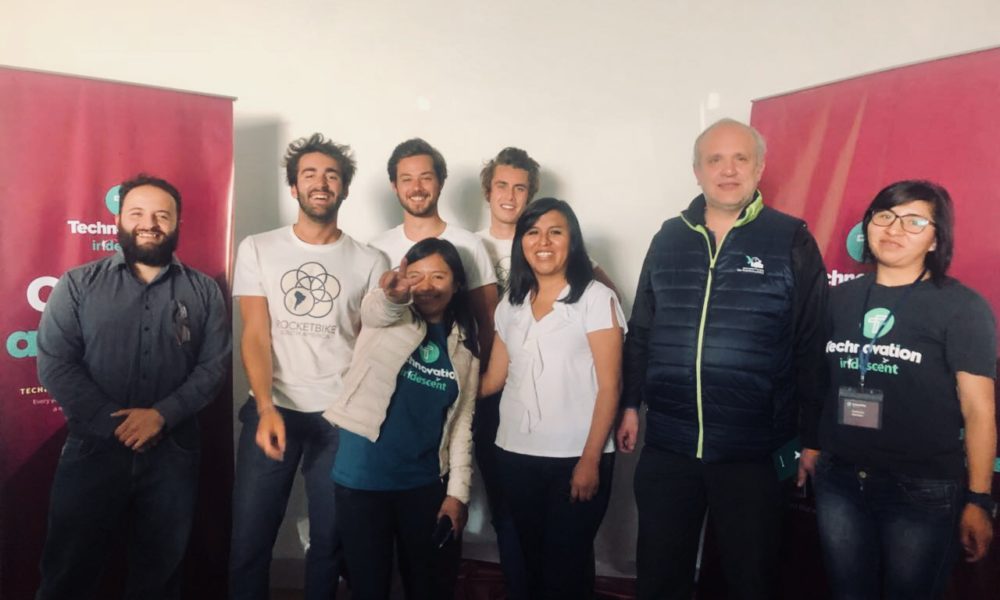Entrepreneurs in Chile are turning to AI to shake up the way we eat. Since 2015, a Santiago-based startup named NotCompany – or simply NotCo – has been combining Artificial Intelligence with food-science to create innovative plant-based foods, in response to the increasing strain that the meat and dairy industries are putting on the planet’s stretched resources.
The founders of NotCo – Karim Pichara Baksai, Matias Muchnick and Pablo Zamora – are on a mission to disrupt the factory-farm system by producing foods that taste identical to beef burgers, milk, eggs, and a host of animal-based products, without involving animals in the production process.
The planetary benefits of consuming plant-based food are well known. A recent report found that meat and dairy producers will soon surpass the oil industry as the world’s leading emitters of greenhouse gases. Vegetarian and vegan movements have gained much traction as the colossal impact of meat-farming on global warming has entered the public eye, but they are still limited to the planet’s wealthier inhabitants. In regions like Latin America, the widespread availability of high-calorie, low-cost foods with little nutritional value have caused radical shifts in traditional diets and entailed monumental increases in diseases such as obesity and type 2 diabetes.
NotCo wants to change this picture by producing healthy and sustainable foods at an affordable price, which can serve as alternative to nutritionally-devoid factory-farmed products. To do this, the company’s founders are focusing on technology.
Pichara and Zamora developed a machine-learning software named “Giuseppe”, which they use to discover links between different animal and plant proteins and find innovative ways to reproduce the fats and proteins found in meat, poultry and dairy products. The software uses algorithms to systematically identify plant-based ingredients which could potentially replicate characteristics of animal-based produce. Entering more data into the system increases it knowledge base and subsequently its ability to predict which vegetables will best resemble the molecular structure of animal products.
Seeing as there are over 250,000 edible plant species worldwide, NotCo hopes that the software’s machine learning approach, which allows the computer to learn through trial and error, can speed up the laborious process of manually identifying similar characteristics between animal and plant-based foods. The company named the AI robot after Renaissance painter Giuseppe Arcimboldo, who painted human portraits only using fruit and vegetables.
NotCo’s current product line include an eggless mayonnaise called “Not Mayo”, sold in several South American countries, and it is looking to expand into the US Market in 2019. New products, including “Not Milk”, “Not Ice Cream”, “Not Yogurt” and “Not Cheese” are set to hit stores in the near future.
Yet despite their pragmatic approaching to disrupting the agro-industry, the company recognises the difficulty of convincing people to give up meat, especially in countries where citizens remember the days when meat was a luxury. Vegetarians and vegans make up the clear minority and it is currently hard to see how emerging tech companies can disrupt the long-standing agro-industrial production model, which sees multinational corporations churn out processed foods at ever-more affordable prices.





